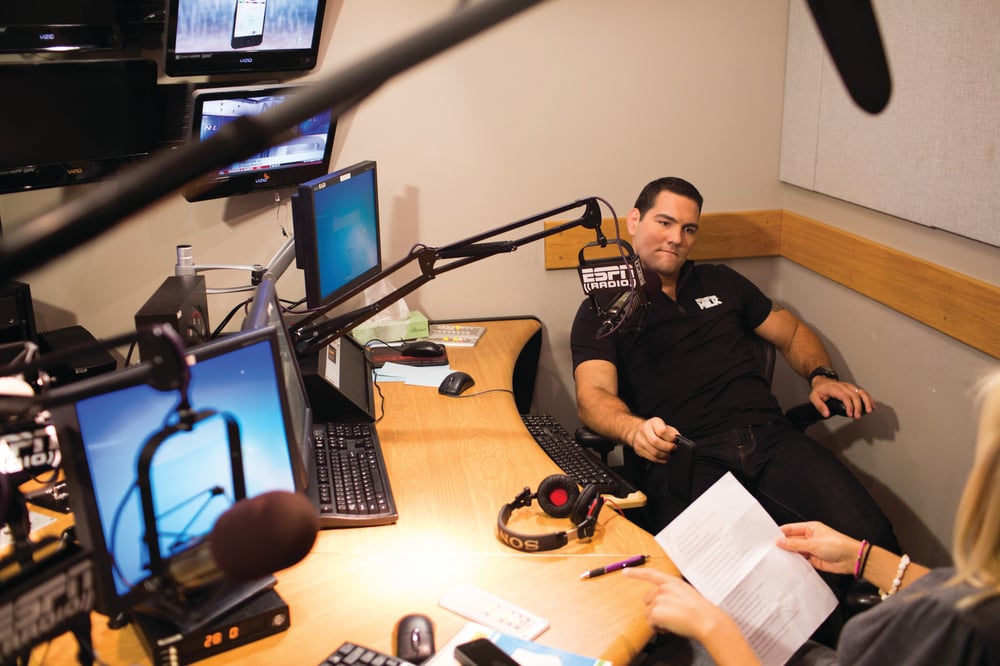
Issue 123
December 2014
If you want to win inside the Octagon, you’ve got to let it all out
When it comes to human emotions and sports, mixed martial arts is the proverbial roller coaster. One minute you’re on top of the world riding a winning streak and cashing bonus checks. The next you’re flat on your back counting stars and being attended to by medical professionals.
It takes blood, sweat and tears to be a prizefighter. And while most athletes would profess it’s a little more of the first two than the third, science suggests shedding a few tears could in fact be key to unlocking your full athletic potential.
According to a study published in the Journal of Sport and Exercise Psychology in September, allowing your emotions to run wild when you’re heading into competition is the perfect avenue to success, whether it be inside the ring or cage, or out on the court or field.
However, in the macho world of contact sports, a lot of fighters try to bury their feelings. Dr Chris Wagstaff, from the University of Portsmouth, UK, has found strong evidence that burying those feelings actually results in poorer performance.
Dr Wagstaff explains: “Sports people frequently have to control their emotions in the run-up to and during competition, but this appears to significantly reduce the level at which they perform. Their thought processes are diminished, they put in less effort and they feel more tired than when they aren’t asked to hide what they’re feeling.
“We all know the feeling of having to sometimes hide our thoughts and feelings. It can make us feel exhausted, and because sports people operate in a result-driven goldfish bowl, the demands for suppression are particularly high.
“To protect sporting performance, it’s important that those who manage and organize sports people should avoid exposing them to tasks which demand emotion regulation close to competing.”

Fighters are frequently put under a heavy emotional load, especially at the highest level. They have the pressure and anxiety of failure to contend with, while at the same time remaining positive and upbeat for media interviews and interactions with fans.
Dr Wagstaff says: “Sports organizations impose chronic expectations and requirements for emotional suppression on performers, such as being overly optimistic about chances of success, being supportive of under-performing leaders, or being friendly to fans and forthcoming with media, but there is a cost in terms of performance.”
Bottling it up inside can have detrimental effects on output. Not surprisingly, in MMA, this theory is consistent in that a lot of the stars at the top are hugely emotional characters. Former champion and current middleweight contender Vitor Belfort wears his heart on his sleeve – both inside and outside the Octagon.
He burst into tears during a Nevada State Athletic Commission (NSAC) hearing in July when he was given a license to compete in Las Vegas and he speaks passionately about his family, teammates and opponents.
Wanderlei Silva became one of the most iconic figures in the sport largely due to his unreserved passion, while tears too are frequent in the make-up of Anderson Silva, still largely regarded as MMA’s Greatest Of All Time (GOAT).
On the other hand, keeping everything pushed down inside could be ruinous. Dr Wagstaff says athletes who aren’t prepared to let it all out could face some frightening consequences: “It appears to be possible that increasing demands on sports people to suppress their emotions leads to an overload.
“Those forced to suppress their emotions become less able to control their emotions and the end result is someone who has poor personal relationships and who is not good at managing conflict.
“To compound the problem further, failure to self-regulate is linked to violence, doping and cheating.”
5 POSITIVE FIGHTING EMOTIONS
Here are five key emotions that once achieved will let you know you’re succeeding as a fighter:
1 TRUST
Trusting in yourself and your team will allow you to grow as an athlete and realize your full potential. The act of reliance is a tag team partner of inner confidence and belief.
2 PATIENCE
Success is about perseverance and knowing the very best things in life take time. There is no need to panic as all good things come to those who work hard.
3 COMPASSION
This doesn’t mean feeling sorry for others, it means never measuring yourself against anybody else and an acceptance that perfection will never be attained. Follow your heart and your gut to reach your goals.
4 SATISFACTION
Success is not found by chance. You have worked and earned your successes and by releasing the shackles of self judgement you can be free to continue to achieve.
5 CONTENTMENT
What was once a struggle is now a breeze. Now you’re establishing yourself inside the ring or cage it becomes second nature and once more you can be free of any debilitating lack of confidence.










